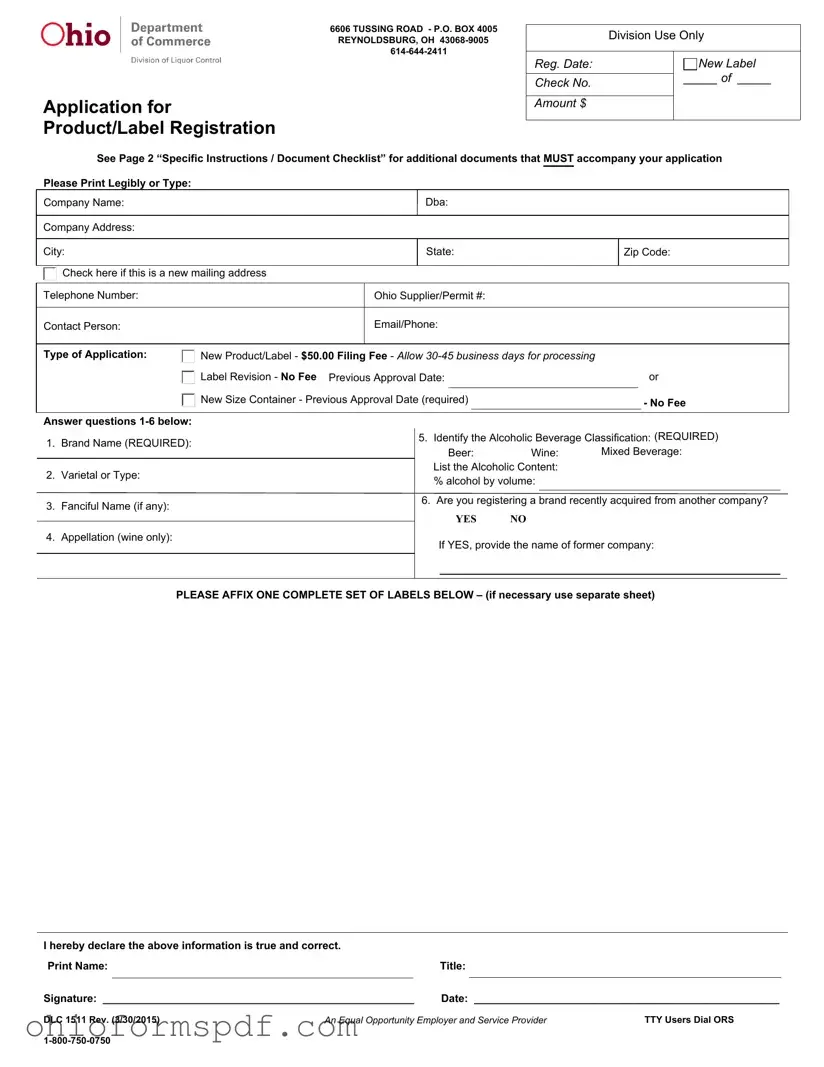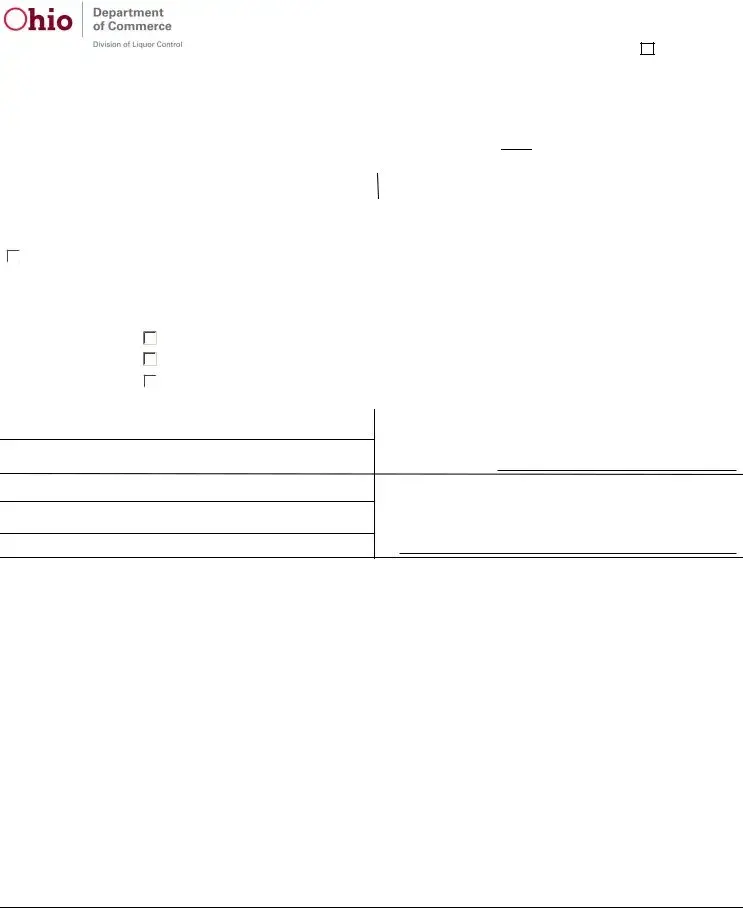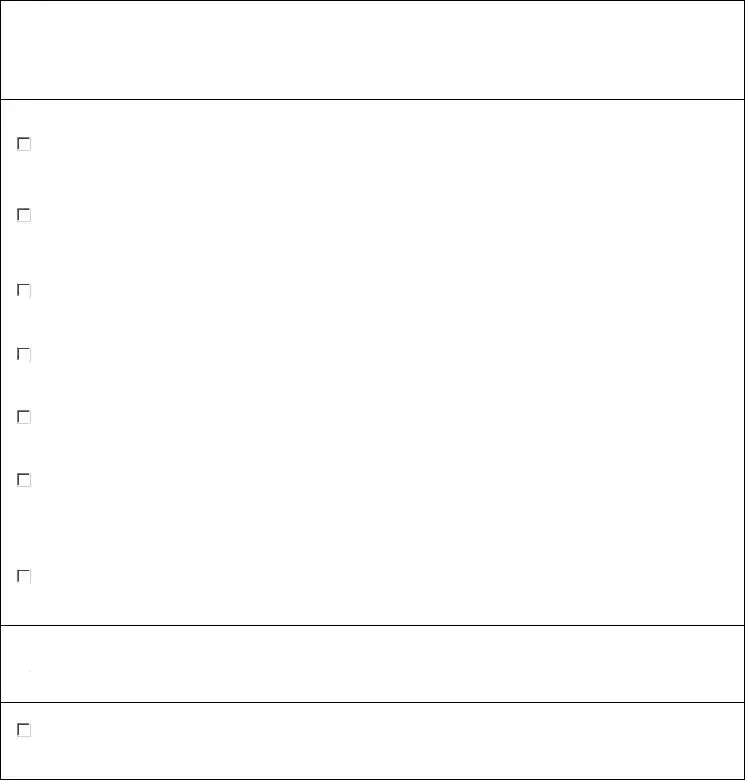The Federal Certificate of Label Approval (COLA) form, required by the U.S. Department of Treasury, Alcohol and Tobacco Tax and Trade Bureau (TTB), shares similarities with the Ohio Label Registration form in that both necessitate specific details about alcoholic beverages prior to their approval for sale. The COLA form, like the Ohio form, demands information such as brand name, alcohol content, and varietal for regulation purposes. These forms ensure that labels comply with federal and state regulations, respectively, to protect consumers by providing essential product information.
A Business License Application, commonly processed by state or local authorities, is quite similar to the Ohio Label Registration form. While the business license application’s primary aim is to grant legal permission to operate within a specific jurisdiction, it typically requires company details similar to those on the label registration form, such as the company name, address, and contact information. Both forms serve as a regulatory checkpoint for businesses, ensuring that they meet certain criteria before conducting activities.
The Supplier Appointment Letter, which a manufacturer provides to appoint an importer or a designated agent, resembles the Ohio Label Registration form in its function to establish official business relationships and roles. The Supplier Appointment Letter, as part of the document checklist for label registration, clarifies the connection between a manufacturer and the entity responsible for distributing the product, similar to how the registration form identifies the company and its products for regulatory tracking and compliance.
Trademark Registration forms, overseen by the United States Patent and Trademark Office, share the goal of protecting brand identity, just as the Ohio Label Registration form does by registering a product's brand name and label. Both forms are crucial for securing intellectual property rights—trademark registration for logos and brand names, and label registration for the marketing and packaging of alcoholic beverages. This legal documentation helps prevent infringement and ensures brands are distinctly recognized in the marketplace.
The Territory Designation form (DLC 1539), required for specifying exclusive sales territories for products registered by a manufacturer or supplier in Ohio, functions similarly to the Ohio Label Registration form in defining the scope of a product's distribution. It outlines the geographical areas where the product can be sold, ensuring that suppliers adhere to exclusive distribution agreements, paralleling the label registration form’s aim to document and regulate the introduction of alcoholic beverages into the market.
A Food Facility Health Permit application, essential for businesses involved in food preparation or sales, parallels the Ohio Label Registration form through its insistence on adherence to health and safety regulations. While one focuses on food and the other on alcoholic beverages, both require detailed information about the business and its products to ensure public safety and compliance with relevant standards before granting permission to operate or launch a product.
The Environmental Protection Agency (EPA) Notification Form for New Chemical Substances shares an objective with the Ohio Label Registration form by necessitating thorough disclosure about a product before it enters the market. While one focuses on chemicals and their potential environmental impact, and the other on alcoholic beverages and their compliance with state liquor laws, both forms facilitate regulatory oversight and consumer safety by documenting vital product details.
An Import License application, necessary for the legal importation of goods into a country, resembles the Ohio Label Registration form in that it requires importers to submit detailed information about their products, including origin, brand, and contents. This process ensures that imported products meet the country's standards and regulations, similar to how the Ohio Label Registration ensures alcoholic beverages sold in Ohio comply with state laws concerning branding and content disclosure.
The Nonprofit Organization Registration form, required for charitable organizations to legally operate, parallels the Ohio Label Registration form in the aspect of regulatory compliance. Although one pertains to nonprofit activities and the other to alcoholic beverages, both necessitate detailed information about the organization or company, including its name, address, and point of contact, ensuring accountability and transparency before granting approval.





 accommodate Supplier
accommodate Supplier